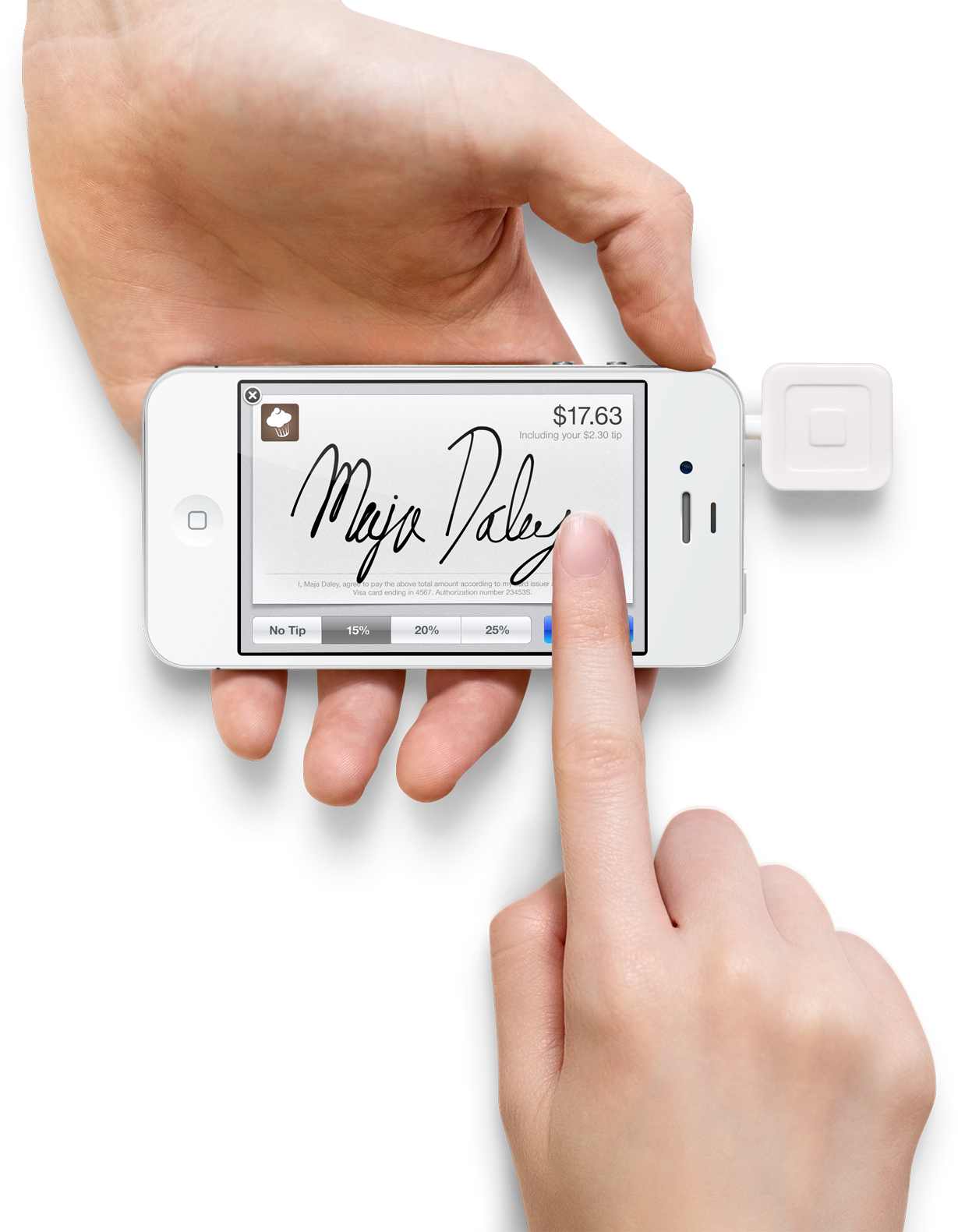Posts from ‘Learn From the Best’
Square: More Than Disruption
Innovation becomes disruptive when it creates a simpler, faster, cheaper or better way to do something that lots of people want.
Lots of companies are disrupting their respective markets: AirBNB, Facebook, Stripe, Gumroad, Zappos, Redbox, Netflix — the list could go on. All of these companies found better ways to give people stuff they wanted. And, in most cases, something that alot of people wanted. In some cases (AirBNB, Gumroad), they gave people something they didn’t even know they wanted, until they did.
 ReCorporate is about more than disruption — it’s about rethinking the essence of business and leadership. It’s one thing to create a disruptive product. It’s an entirely different thing to build a company that disrupts an entire industry, and creates a new standard in design, pricing, value creation and corporate ethos while they’re at it.
ReCorporate is about more than disruption — it’s about rethinking the essence of business and leadership. It’s one thing to create a disruptive product. It’s an entirely different thing to build a company that disrupts an entire industry, and creates a new standard in design, pricing, value creation and corporate ethos while they’re at it.
Square has done just that. They’ve built a product that creates dynamic user value through the marriage of hardware and software to accomplish an incredibly common (and often painful) task. Millions of small businesses who accept credit cards each day are forced to purchase point of sale equipment and sign long-term contracts with traditional merchant service providers. These systems are built for large companies with many locations, not for local businesses — but since there was no viable alternative, these small businesses used to have no choice.
Square gives anyone and everyone the ability to accept credit cards simply, elegantly, and cheaply. The design — both hardware and software — is brilliant. Whether you’re a college student splitting a dinner check or the owner of a local cafe, it just works.
Square values their team members, and they’ve created a culture that allows everyone to operate at the intersection of their passions and abilities — something that many organizations miss entirely (and sacrifice a great bit of efficiency and capacity in the process).
It’s just the tip of the iceberg for Square. They’ve seen incredible growth over the past three years, now processing millions of dollars of payments a day. But there are still millions of small businesses and individuals who experience the pain of traditional merchant services every day. As word continues to spread, and Square continues to scale, they will create exponentially more value for small business owners and individuals in thousands of markets and tens of thousands of cities — a very exciting future lies ahead.
[Square has given college students the opportunity to be a part of this future and join their team to reach these small business owners as SquareU Reps. These reps act as the face of Square to small businesses in their region, and I’m excited to say that I’m joining the Square team in this capacity. If you’re interested, or know someone who would be, shoot me an email or check out the job posting here. If you want to experience the magic of Square, click here to get your free reader.]
In a world of certainty, profit doesn’t exist.
Profit, both social and fiscal, is only possible with uncertainty in the markets. Without uncertainty, every market would be at perfect equilibrium all the time. Profit margins disappear. There would be no stock market. Venture capital becomes impossible.
 Why? Because uncertainty inspires risks, and risks create opportunities for profit.
Why? Because uncertainty inspires risks, and risks create opportunities for profit.
Uncertainty is the cliff lying ahead of the base jumper. Risk is the jump — the commitment to free fall, fully embracing the very real possibility of catastrophic failure. Profit is the parachute deploying — surviving the fall, with a chance of striking the perfect landing upon touchdown.
Sometimes these risks lead to monetary profit. Peter Thiel took a risk on Facebook — a big risk at that, and he’s made about $7 Billion for his willingness to throw $500,000 at a startup trying to do the unthinkable: connect the world. In 1999, Sequoia Capital and Kleiner Perkins took a massive risk on Google, investing $25 Million for 20% of the company. Now, with Google’s market cap at $182 Billion, they’ve become Silicon Valley legends for that single investment.
Sometimes it’s social profit. Not (necessarily) in a ‘social entrepreneurship’ sense, but in the broader sense — simply that they end up changing the world. Society is better off because of the risk someone took. A recent, and perhaps uncanny example of this is Airbnb. No one thought it would work. Not even Fred Wilson. But Paul Graham believed it would — so much so that he incubated them at Y-Combinator. They are changing how people travel, disrupting the entire hotel industry, and driving income for people who would otherwise be struggling to make ends meet. Or, take Ushahidi. Omidyar Network, the Knight Foundation, and others took a risk funding Ushahidi in 2008 following the post-election violence in Kenya. Today, they’re changing the way information flows during crises, with more than 20,000 deployments of their crisis mapping platform across the globe.
The point is, very rarely does anyone find success by fabricating a risk-free venture. It’s in the darkness of uncertainty that the largest opportunities lie. People that consistently embrace risk — and uncertainty — usually end up changing the world.
———
Photo licensed under Creative Commons from Roo Reynolds via Flickr
Someone once asked Seth Godin why he doesn’t tweet. His response? “Because I couldn’t be the best at it.”
Seth Godin, one of the most-read bloggers on the web, understands that at the end of the day, nothing else matters besides the product that you deliver to your customers. If you aren’t in a position to deliver a product of the highest quality, are you willing to put your name on it?
 Every person in the world has a product they are delivering, and you all have customers that you’re delivering it to. Whether you’re a professor delivering a lecture to a class of university students, or a middle-level manager in a meeting at a Fortune 500 company — you have customers; and you are delivering a product to them, whether you realize it or not.
Every person in the world has a product they are delivering, and you all have customers that you’re delivering it to. Whether you’re a professor delivering a lecture to a class of university students, or a middle-level manager in a meeting at a Fortune 500 company — you have customers; and you are delivering a product to them, whether you realize it or not.
If you’re a lawyer who hasn’t won a case in years, it doesn’t matter if you drive to the courthouse in a Bentley— you’re not a good lawyer.
If you’re a salesman who can’t get signatures on checks, it doesn’t matter if you generate more leads than anyone else in your department — you’re a sub-par salesman.
If you’re an editor who consistently overlooks typos and grammatical errors, it doesn’t matter if you’re editing Malcolm Gladwell’s next book — you’re a poor editor.
If you can’t deliver a quality product in a timely manner, all other circumstances surrounding your work are meaningless. It’s all too easy to rely on external factors to make up for your own lack of diligence; we’ve all done it. You may be able to slide by on other people’s laurels for a while, but eventually your customers will judge you by the quality of your work — not what people think about you, who you work for, or what you’ve done in the past.
Seth Godin is arguably the greatest communicator in the world today. Yet, he refuses to join Twitter. He’s willing to forego an entire medium of communication because he believes he won’t be able to maintain the incredibly high-standard he’s set for the way he engages with his customers.
If your name is going on it, refuse to settle for mediocrity, even if it means hours of extra work or foregoing an opportunity entirely. Be vigilant about protecting and maintaining your personal brand image. Your customers, whoever they may be, are almost always interested in quality over quantity — give them a reason to expect quality products, and deliver products that meet that expectation.
(I’d be remiss not to mention that I’ve had the privilege of spending the last few months working at the iHub in Nairobi for Erik Hersman (Co-Founder of Ushahidi, Founder of the iHub Nairobi , TED Senior Fellow, etc.). This post was born out of many insightful conversations with him over the last few weeks.)
———
Photo Credit: Jim @TechFrog Alden via Flickr
Google+ won’t win.
It may ‘win’ for a year or two, but it won’t win in the long run — it isn’t the ‘Facebook Killer’ that everyone is heralding it to be.

When people say ‘Facebook Killer,’ they really mean ‘Next Big Thing.’ Most people don’t care about the ‘Killing Facebook’ part of it — they care about the next big innovation that will become the primary platform by which they connect with people across the globe for the next 5 to 7 years. It isn’t Google+.
You can’t kill Facebook by creating a slightly-improved version of Facebook. Why? Because no one wants a better Facebook. They may say they do, but they don’t. Steve Jobs (a master of innovation) famously says, “You can’t just ask your customers what they want, because they don’t know what they want.” In reality, they want something new entirely — something they haven’t even thought of yet.
Whoever can create an online platform that connects people in a completely-unexpected, simple-to-use, fully-integrated, and universally-accessible way will dominate the web for the next 5 to7 years. Barring serious improvements, it won’t be Facebook, Twitter, or Google+. When it does come around, you won’t even realize you need it — until you do.
Every industry has a Facebook. Unless it’s a necessity, don’t spend time creating better Facebooks. It’s not sustainable. You’ll never change the world by creating slightly better products than your competition. Develop a product that no one knows they need, then convince the world that they need it. Create an entire market that didn’t exist before, and force your future competitors to follow your lead.
